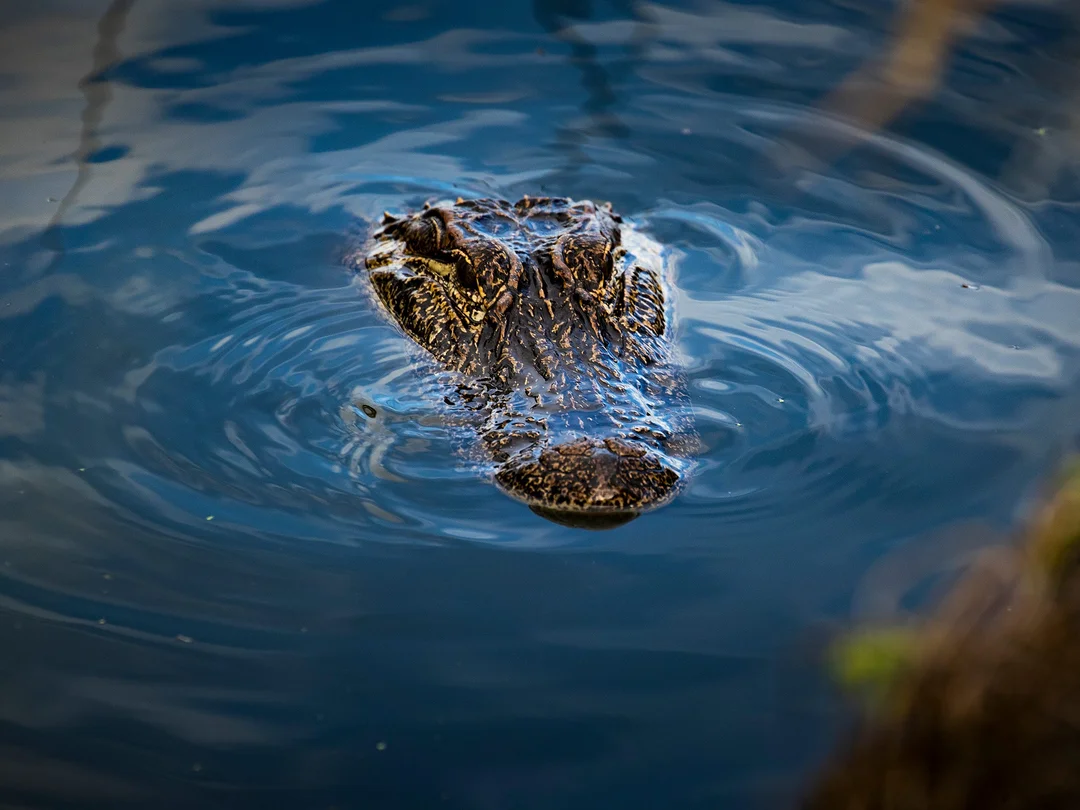
What Lurks Beneath: A Deadly Encounter on Florida’s Waters?
In the serene waters of Florida's Lake Kissimmee, a routine outing turned tragic, highlighting the hidden dangers of coexisting with wildlife. On Tuesday, a woman lost her life in an unexpected alligator attack while canoeing, raising questions about safety in one of America's most alligator-populated regions. This incident serves as a stark reminder of the rare but potent risks in Florida's wetlands, where human activity frequently intersects with nature's raw power.
Authorities from the Florida Fish and Wildlife Conservation Commission (FWC) reported that the attack occurred just after 4 p.m. near the mouth of Tiger Creek, where it flows into the expansive Lake Kissimmee, about 70 miles south of Orlando. The victim, who was in a small paddle-powered vessel—believed to be a canoe by FWC officials—was pulled into the water during the encounter. Witnesses and responders quickly alerted authorities, leading to a coordinated response involving FWC officers, Polk County sheriff's deputies, and even helicopters. Despite their efforts, the woman was recovered from the water and pronounced dead at the scene. The exact details of the attack remain under investigation, with no immediate confirmation on the alligator's size or capture.

This event underscores the growing concerns about alligator-human interactions in Florida, a state home to approximately 1.3 million alligators across its 67 counties. According to FWC data, unprovoked attacks are rare, with fewer than 500 confirmed incidents since 1948. Experts suggest that most encounters stem from human inattention, such as venturing too close to alligator habitats during mating season, which is currently underway. The attack coincides with this peak period, when alligators become more territorial, compounded by ongoing drought conditions that may displace these reptiles from their usual spots. In comparison to other wildlife threats, like bear encounters in national parks, alligator attacks in Florida are statistically less common but often more fatal due to the animals' strength and ambush tactics.
Local residents and experts have shared insights into the incident. One camper at Lake Kissimmee State Park told reporters, "It's not common at all—I used to live by a lake and nothing like this ever happened. Maybe she got too near a nest." This quote echoes broader warnings from the University of Florida, which analyzed that over 90% of attacks involve some form of risk-taking. FWC has since dispatched a nuisance alligator trapper to the area, though the specific animal involved has not yet been located. The agency plans to hold a press conference to provide updates, emphasizing the need for public awareness.
As Florida's wetlands continue to attract outdoor enthusiasts, this tragedy highlights the delicate balance between adventure and peril. With alligator populations thriving, experts advise treating these areas with the same caution as hiking in bear country or swimming in shark-infested waters—maintain distance, avoid feeding wildlife, and report aggressive behavior via the FWC hotline at 866-392-4286.

In summary, this fatal encounter serves as a wake-up call for safer interactions with Florida's wildlife. How can we enjoy these natural wonders without inviting danger? We invite readers to share their thoughts: Have you had a close encounter with an alligator? Leave a comment below or share this story to spark a conversation on wildlife safety.